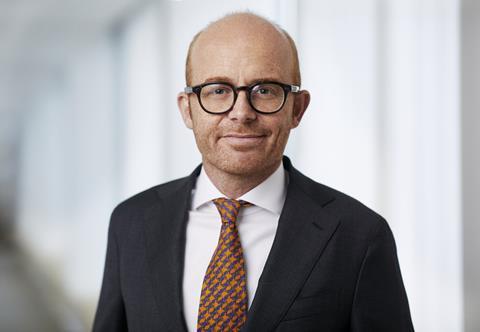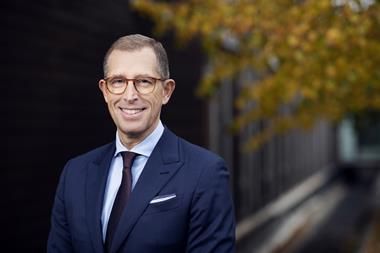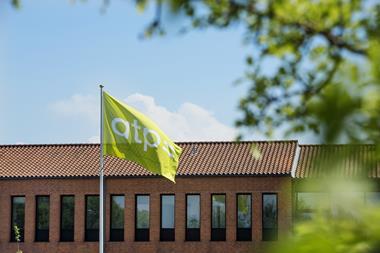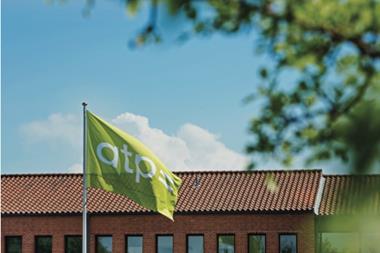Denmark’s ATP released its first-half results this morning, with numbers revealing second quarter investment losses wiped out most of the pension fund’s early 2023 gains as it shed billions of kroner from illiquid investments – such as real estate and infrastructure.
The statutory pensions giant reported its overall assets dipped to DKK683.7bn (€91.7bn) by the end of June from DKK686.7bn at the end of March, with its return-seeking investment portfolio having produced a January-to-June gain of 0.9% before tax.
The investment portfolio consists of ATP’s bonus reserves, and is leveraged by borrowing from the much larger hedging portfolio designed to back ATP’s pension guarantees.
At the end of June, the hedging portfolio was worth DKK538.5bn while the investment portfolio was DKK105.2bn.
The 0.9% investment portfolio gain shows there were losses in Q2, since Q1 returns were reported as 5.6%. In absolute terms, the portfolio lost around DKK3.3bn in Q2, according to IPE’s calculations.
An asset category breakdown of returns for the investment portfolio between January and June in the interim report shows that positive contributions to the overall DKK1.37bn first-half gain came from listed foreign equities with DKK2.73bn, unlisted shares with DKK1.98bn, listed Danish shares with DKK1.51bn while credit contributed DKK1.08bn.
On the other hand, infrastructure, real estate and government and mortgage bonds lost DKK487m, DKK1.77bn and DKK489bn, respectively.
On top of that, inflation-related instruments lost DKK1.19bn, according to the report.
Martin Præstegaard, ATP’s chief executive officer, told IPE he was satisfied, more or less, with the Q1 result on the investment portfolio.
“We came out of 2022 with a bad result, it was a tough year for our portfolio because we were heavy on interest-rate risk, and therefore it was good to stabilise that with an acceptable investment result,” he said.
“But of course I would have liked to earn more money,” he added.
“At the beginning of this year, a lot of people were talking about the risk of stocks going down – but we have actually kept our risk levels and are a little bit overweight in equities,” Præstegaard said.
“The explanation for our result is much more about our balance of liquid and illiquid portfolios, and that balance will change over time,” he noted.
In 2021, it had been a good thing to have high risk levels in the investment portfolio, he said, but then came the rough year of 2022.
“However one of our main goals in the investment portfolio is also to stabilise our funding degree,” he said.
“We run a guaranteed product and our investment portfolio is also constructed to stabilise our ability to give a bonus,” said the CEO, adding that ATP did not invest in the same way as everyone else.
He compared ATP’s method of operation to large Dutch occupational pension funds.

“They have been underfunded for many years, and now last year, when interest rates went up, they were suddenly in a good funding state - they were above 100 and they increased pensions,” he continued.
By contrast, ATP had had very stable funding levels during 2022, he said.
“So even when we lost a lot of money in 2022, we had an acceptable decrease in our funding level.
“This is basically a guaranteed product with a fully-hedged defined-benefit pension scheme with an investment portfolio above that to hold the reserves in our so-called bonus potential,” the CEO said.
ATP, which has been under external pressure to change its business model because of comparatively poor returns, in 2021 added a new element to its pension scheme, in the form of a layer of pension savings whose returns involve some market risk.
“In that way, in the entire product we have increased value creation,” Præstegaard said.
ATP’s interim report showed that over the last five years, the investment portfolio has only returned 4.4%.
Asked by IPE if ATP would consider changing the asset allocation in its investment portfolio in the light of recent returns, Præstegaard said: “We always think about our balance between alternatives or illiquid investments - that is always up for some internal discussion”.
Read the digital edition of IPE’s latest magazine























